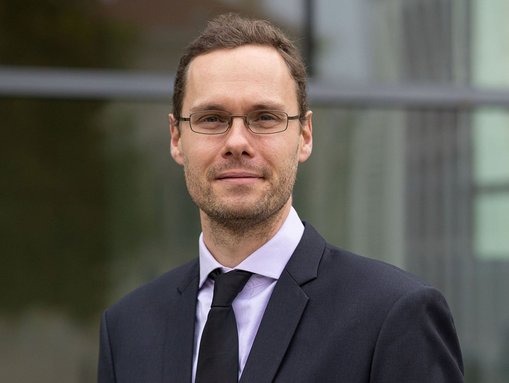LATEST NEWS
Short interview with Prof. Dr. Thomas Kirschstein
Prof. Dr. Andreas Kirschstein has been appointed Professor of Sustainable Operations Management at the Wiesbaden Business School of Hochschule RheinMain (HSRM) as of September 1, 2024. He studied business administration at Martin Luther University Halle-Wittenberg (MLU), where he completed his doctorate in 2014 and his habilitation in 2020. From 2008 to 2011, Thomas Kirschstein worked for Dow Olefinverbund GmbH as a research assistant at the Chair of Statistics at MLU. He then moved to the Chair of Production at MLU, where he was a research assistant until 2021. In 2016, Thomas Kirschstein taught and researched abroad at the Università degli studi di Cassino e del Lazio Meridionale in Italy. Kirschstein took on a deputy professorship for Operations Management at the University of Magdeburg in 2020. He then worked at the Fraunhofer Center for International Management and Knowledge Economy IMW, initially as a project manager and since 2023 as a team leader.
What aspect of your research fascinates you the most?
Above all, I enjoy solving concrete and practical problems that seem very complicated and confusing at first. My field includes both everyday problems such as finding the shortest round trips and niche problems such as determining pumping cycles in multi-product pipelines. Unraveling such problems, structuring them, describing them appropriately and then solving them is a fascinating process that never gets boring because the problems are always a little different and always challenging.
What does “good teaching” mean to you?
In my field, good academic teaching means showing how to solve a specific business problem using scientific methods. It should convey that these methods are essential to the daily business in a company. On the one hand, we need to precisely describe specific real-life processes and problems. On the other hand, we must find a way to come to actual decisions and solutions from the complexity of practice. It is important to convey that there is rarely one truly best solution, but usually many different solutions, which usually differ depending on the goal and perspective.
What did you want to be growing up?
I had many dream jobs as a kid and they changed over the years – farmer, historian, it was quite varied.
What do you enjoy doing in your spare time?
I spent time with my family and my children. They show me different facets of life and help me to balance work and life. I also enjoy sports such as cycling, jogging or squash.
